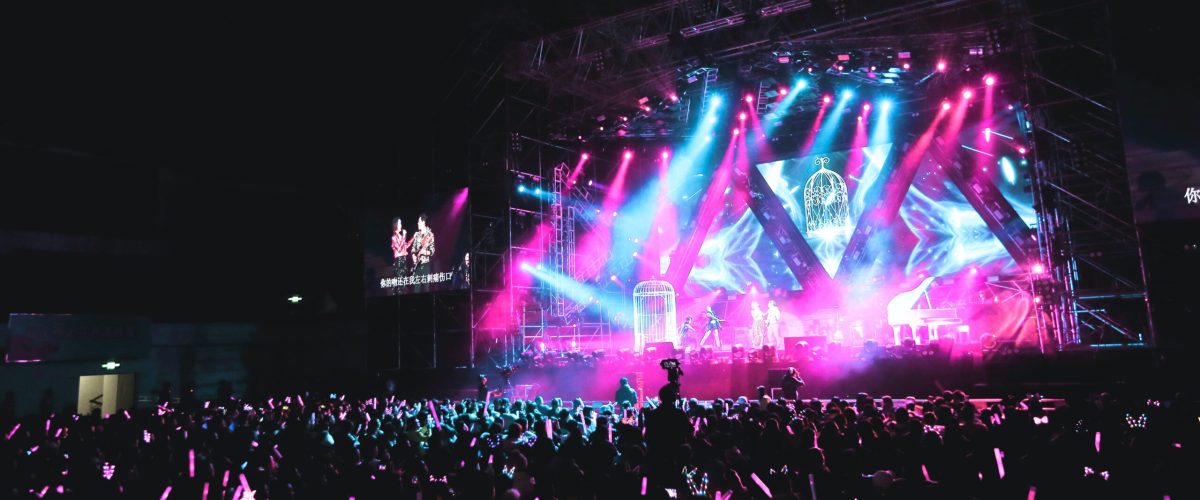The people or agencies that book, organize, or manage live entertainment events must also deal with the critical risks associated with putting on live entertainment events. They include long-standing threats, e.g., last minute artist cancellations or weather phenomena, as well as newer and emerging threats such as changes to audience behaviors and artist social media issues. It’s up to those of us who manage or book live events to take steps to mitigate them as much as possible. Here are 6 potentially major risks that require vigilance and steps to mitigate them. They include:
- Cybersecurity Threats and Data Breaches.
- Reputation
- Violence and Bad Behavior
- Talent Risk
- Third Party Liability
- Weather/Venue Issues
There are also other macroeconomic and other risks beyond the control of those who produce live entertainment events. They include such things as
- Economic downturns or recessions.
- Inflation and workforce shortages
- Interest rates
- Force Majeure events such as public health or weather emergencies
You can learn more about these and other economic issues in my post on Music Festival Economics.
Six Significant Risks Facing Live Entertainment Events
1. Cybersecurity threats and data breaches
 In today’s digital age, the live entertainment industry faces a multitude of risks when it comes to cybersecurity. With the increasing reliance on technology for entertainment event planning and ticket sales, hackers have found new ways to exploit vulnerabilities and cause harm to event organizers, venues, artists, and ticketing platforms.
In today’s digital age, the live entertainment industry faces a multitude of risks when it comes to cybersecurity. With the increasing reliance on technology for entertainment event planning and ticket sales, hackers have found new ways to exploit vulnerabilities and cause harm to event organizers, venues, artists, and ticketing platforms.
One major risk is the hacking of event, ticketing, or artist sites. These websites hold sensitive information such as personal and financial details of customers, event logistics, and artist contracts. If a hacker gains access to this information, it can result in significant financial loss and reputational damage for all parties involved.
Moreover, intellectual property theft and leaking is another pressing concern for the live entertainment industry. This includes stealing event concepts and ideas or leaking artist setlists or unreleased music. Such incidents can not only harm the event’s success but also damage relationships with artists and jeopardize future partnerships with event promoters.
To combat these risks, it is crucial for event organizers, venues, and ticketing platforms to prioritize cybersecurity measures. This may include regular security updates, strong password protocols, data encryption, and employee training on identifying and preventing cyber threats.
2. Reputation

The reputation of an artist holds significant sway in the live entertainment industry. An artist’s image can deeply impact not only their personal career but also the livelihoods of countless others involved in the production and organization of live entertainment events. In an era where information is readily accessible, an artist’s behavior, both on and off the stage, is subject to intense scrutiny and can easily sway public opinion.
Negative publicity stemming from an artist’s unsavory actions or attitudes can have a ripple effect. Fans might boycott their shows, affecting ticket sales, leading to potential financial losses for venue operators, concert promoters, and live event organizers. Additionally, merchandise sales, a significant revenue stream, can also plummet.
In the long run, continuous negative press can tarnish the artist’s brand, making them less desirable for future bookings. This situation can pose a challenge for talent buyers, who must carefully consider an artist’s reputation when determining their value and the potential risk involved in booking them.
It’s therefore crucial for all those involved in live entertainment events to avoid negative publicity, including social media. It’s also important for those producing entertainment events to address issues related to artist reputation when booking artists for their events.
3. Violence and Bad Behavior

With large crowds and high-profile events, the risk of accidents or security breaches is a constant concern. It is crucial to conduct thorough risk assessments and work with reputable security firms to ensure the safety of all attendees. Effective crowd management strategies at entertainment events can prevent adverse incidents from happening. You can read more on crowd safety. The National Fire Protection Association also has a list of strategies for crowd management safety.
Security measures and safety protocols play a pivotal role in mitigating the threat of violence and inappropriate audience behavior at live entertainment events. A comprehensive security plan, tailored to the specific nature of the event, is instrumental in ensuring the safety and well-being of all participants. The plan should have an action plan for any foreseeable incident that can affect the safety of attendees, artists, or staff at live events.
To mitigate the threat of violence and bad audience behavior, many live events now have strict bag and screening policies in place. This includes thorough bag checks, metal detector screenings, and even restrictions on what items attendees can bring into the venue. These measures may seem inconvenient for guests, but they are crucial for ensuring a safe and enjoyable experience for all.
Implementing strict access control measures, such as ticket validation and identification checks, can deter unauthorized entry and potential misconduct. Advanced surveillance systems and well-placed security personnel can facilitate the detection of suspicious activities, enabling prompt action.
Lastly, clear evacuation procedures and emergency protocols are essential to manage situations should they escalate. Regular staff training is also critical, ensuring personnel can respond appropriately and efficiently in various scenarios.
A safety or security breach at a live entertainment event can have serious consequences. Not only does it put the physical safety of attendees and performers at risk, but it also has the potential to cause reputational damage to the event organizers and venue operators. In today’s digital age, news of such incidents spreads quickly, damaging the brand image and trust of the venue, promoter, and all those involved in putting on the event.
Moreover, safety and security breaches can also result in legal consequences. If negligence is found on the part of the event organizers or venue operators, they could face lawsuits and significant financial losses. Needless to say how important it is prioritize safety and security measures.
4. Talent Risk

There are a variety of reasons why an artist might not make the show. The reasons encompass everything from sickness, injury, etc. to something as simple as getting stuck at an airport. Those of us that book headliners and manage events have all faced such issues. TSE has been fortunate that in our 48 years of booking talent and organizing events, we’ve not had a show cancelled under our watch. TSE’s rigorous advancing the show protocols have identified issues before they became a show cancelling problem, allowing TSE enough time to come up with a suitable replacement.
Of course, very last-minute cancellations cannot be replaced. That’s why many live entertainment organizers purchase show cancellation or postponement insurance for their events.
5. Third-Party Liability

As such, the event organizer(s) may be responsible for injuries or damage caused at the event. This responsibility includes protecting contractor’s and vendor’s private data which result in third party liability exposure.
Event promoters and organizers purchase third party insurance to protect them from against claims filed against the insured party by a third party. Third party insurance generally comes in the form of liability insurance, or casualty insurance, and covers instances of bodily injury or property damage.
6. Weather or Venue Adverse Incidents

In addition, unexpected weather conditions can also create logistical challenges and impact the overall success of an event. Heavy rain or strong winds can damage equipment and stages, causing delays and disruptions to performances. It is important for event organizers to have contingency plans in place to mitigate the potential impact of adverse weather conditions.
Outdoor event promoters or organizers have the option of purchasing weather insurance to protect themselves from financial loss that may be incurred because of adverse, measurable weather conditions.
The premium for weather insurance is based on several factors, including the location and time of year. In other words, the dollar amount clients are charged for coverage is determined by the likelihood of the insured weather event occurring and the amount of potential loss. An actuary at the insurance company looks at weather data going back many decades to decide how to price a policy. If, for example, if a particular city gets a white Christmas every 10 years, then the insurer knows that the probability of such an event is 10% and would set premium rates accordingly. In other words, premiums are determined by the likelihood of the insured weather event occurring and the amount of potential loss (policy value).
Venues can also have issues such as power outages, obstructed hallways and exits, exceeding capacity limits, lack of enough staff or security, etc. Promoters and event organizers need to do a thorough vetting of the venue for their shows. Prevention of problems and a safe environment should guide your decision making when it comes to selecting a venue for your live entertainment event.
Conclusion
The live entertainment industry faces a wide range of risks, from artist issues to weather or venue disruptions. The key to mitigating these risks is to have a comprehensive plan in place that covers every possible foreseeable contingency. As an experienced event planning partner, TSE Entertainment can provide the expertise and support needed to overcome any challenges and ensure the success of your event. Contact us today to learn more about our full turnkey event solutions and experienced production team.
With 48 years of experience, TSE is well-equipped to handle any event-related need and has a proven track record of successful live entertainment production. Their experienced production team can handle every aspect of event planning, including booking entertainment, providing local production, and managing the entire event.




